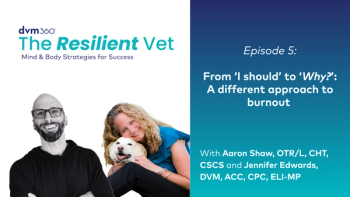
The power of saying 'thank you'
Positive emotions create a wealth of benefits for individuals mentally, physically, emotionally and socially. It's proven, thanks to research by psychologist Barbara Fredeickson and others. But research has also shown that negative emotions are more powerful. Psychologists call it the “negativity bias,” and it means that for you to be happy, you need more positive emotion in your life-as much as three times more. Don't worry, I've got one easy way to get it-gratitude.
Making the most of the ‘Tetris Effect'
Some professionals like us are called to search for problems (the “negative”), whether they're physical abnormalities, loopholes in arguments or mathematical errors. This tendency to seeing the negative, however, can spill over into our personal lives. Sometimes all we can see are problems-with our life, our spouse, our job. This may be one of the many reasons there's such a high degree of stress in professions like ours.
Harvard's Shawn Achor, a pioneer in positive psychology, calls this the “Tetris Effect,” referring to those cognitive afterimages from playing video games for hours on end. In one study, subjects who played Tetris for three straight days ( only at Harvard!) began to see Tetris images on the horizon and in their sleep. The negative Tetris Effect of being in a problem-solving profession can be countered by finding ways to increase perception of positivity. Cultivating gratitude is one such strategy. We can train the brain to scan our environment for what is good in our lives, creating a positive Tetris effect.
Gratitude changes your brain
Scientists now know that the brain is surprisingly malleable. One study found that taxi drivers in London-where knowledge of the intricate road network requires an absolutely heroic memory-have much larger hippocampi, where our memories are seated.
In a study at Stanford, fMRI imaging of Tibetan monks-whose Buddhist religion emphasizes compassion toward all living things-showed significantly higher activity in the monks' left prefrontal cortex, where it's believed our capacity for sympathy and kindness reside. Neuropsychologist Rick Hansen calls efforts to change our neural circuitry “self-directed neuroplasticity.”
When it comes to cultivating more gratitude in our lives, we are doing exactly that-creating a more powerful and effective brain that is working for us rather than against us.
Show some gratitude!
There are many evidence-based positivity strategies-I've already written about
1. Start early. Start saying “thank you” the moment you wake up. Kick-start your brain into positivity! Say thanks for your warm bed, your safe home, your secure job, your loving family and your cozy slippers. Then continue these positive thoughts as you prepare for the day.
2. Thank everyone. Connecting with heartfelt gratitude to more people is a sure-fire way to open up your heart and those you meet. Make a sincere effort to say “thank you” with eye contact, a smile or a head nod to anyone who provides a service or assistance to you. Say “thank you” to your clients and co-workers as often as is appropriate. They are the primary reason for your success in veterinary practice.
3. Say grace (or your equivalent of “Thank you for this great life”). Formal gratitude practices such as grace and prayer have been practiced for millennia. If you don't already include these practices or have dropped them as you've gotten older, consider reinstating what's known to be a vital wellness strategy. A good starting point: Express thanks to all those who made it possible for the food you're about to enjoy and, at day's end, to all those who helped you throughout the day.
4. Start journaling. An extremely powerful strategy is to begin a gratitude journal: Every night write down three things for which you're thankful, as simple as nice pajamas or as profound as a beautiful sunset, a safe water supply or someone's continued health. If this task starts to feel repetitive for you, bolster the effectiveness by getting specific by answering the “Three W's”: What went well today and why? Research shows that 30 days of gratitude journaling could bring about at least three months of increased happiness.
5. Share with a mentor. An extremely potent gratitude strategy developed by famed positive psychologist Martin Seligman is the “gratitude letter.” Write a 300-word letter of gratitude to a living mentor who has had a profound effect on your life. Visit him or her and read it aloud without interruption. Research shows that your happiness could increase for at least five months.
Gratitude is a powerful and readily attained evoker of positive emotions. Retrain and remodel your brain. It will be good for you and everyone with whom you interact.
Dr. Steve Noonan, CPCC, is a veterinarian, management consultant, counsellor, mindfulness instructor, and professional life coach living in Guelph.
Newsletter
From exam room tips to practice management insights, get trusted veterinary news delivered straight to your inbox—subscribe to dvm360.




